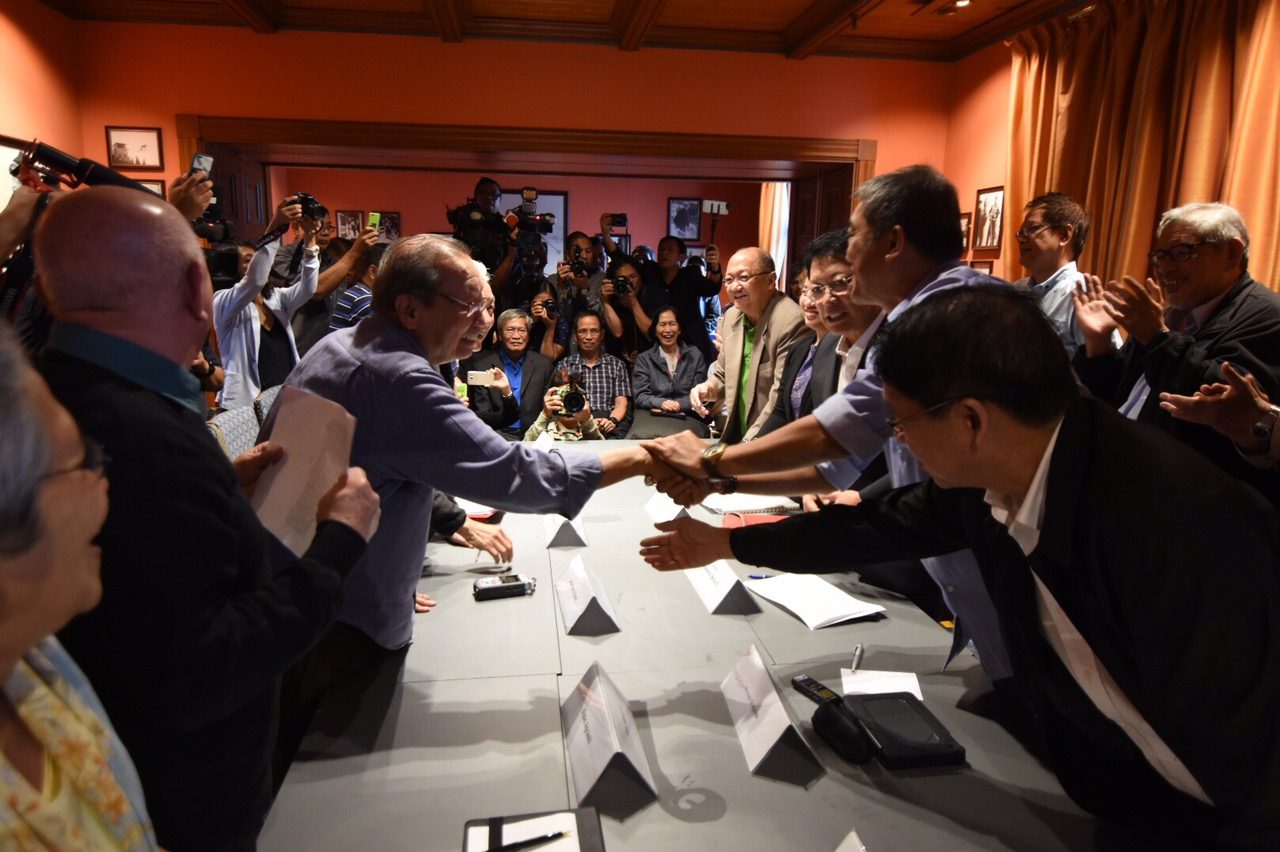SUMMARY
This is AI generated summarization, which may have errors. For context, always refer to the full article.
.jpg) Colombian President Juan Manuel Santos and rebel leader Timochenko recently inked a peace deal that potentially has brought the last of the major Cold War conflicts to an end. It was perhaps the one positive in otherwise a largely desultory year for world peace. It underlined that long-running conflicts can be resolved if there is courage of conviction.
Colombian President Juan Manuel Santos and rebel leader Timochenko recently inked a peace deal that potentially has brought the last of the major Cold War conflicts to an end. It was perhaps the one positive in otherwise a largely desultory year for world peace. It underlined that long-running conflicts can be resolved if there is courage of conviction.
In the Philippines, arguably, the prospects for peace following decades of conflict is perhaps closer than ever before, precisely because there is courage of conviction.
A President from Mindanao with a deep understanding of centuries of injustice, an affinity and empathy borne out of blood ties to the Moros, the political will, and the means to deliver by virtue of a super majority in the legislature, gives cause for great optimism. He has set out a clear road map to close the deal on the various peace processes – with the Communist and Moro insurgents. There is indeed a palpable sense of urgency and momentum in the air.
As in Colombia however, closing denotes not the end of the endeavor but rather the beginning of another critical phase. President Santos remarked that the signing of the Colombian Peace Deal signifies only symbolically an end to the conflict. The hard work is just beginning to secure a lasting peace. He was reflecting intuitively what is now widely accepted as a truism among peace builders internationally: transitions from deep fragility to enduring stability are complex and long. They can be decades in the making. For the peace to endure, justice, economic opportunity and security have to be addressed thoroughly and concurrently.
Much attention in the Philippines is correctly focused on the political settlement to be delivered through enhanced autonomy, embodied in enabling legislation or through constitutional change ushering in a federal model – and through either route, providing for full participation in the political and administrative processes of the Philippines. Underlying these headline ambitions however are a set of historical drivers of conflict that are diverse and complex and which will also need to be addressed.

The experience of effective peacebuilding from around the world shows that the government of the Philippines and the leaderships of the armed groups will now have to work together to allow conflict affected communities to take charge of their own development, in a manner that empowers people rather than advancing the economic interests of a small feudal elite.
The older generation of leaders will have to make way for the young who will be able to reach across the traditional lines of division. The far-reaching recommendations of the Truth, Justice, and Reconciliation Commission will have to be implemented so that those who carry the scars of decades-long violence can move on, and a foundation is laid for a society that draws strength from diversity, including the tremendous resilience and innovation of its indigenous persons, youth, and women. Economic development should be achieved by integrating conflict affected areas with growth poles across the country to maximize the peace dividend and to bind communities irrespective of ethnicity.
Confidence in state institutions will need to be built steadily so these institutions are seen to be responsive, transparent, and accountable to the needs of its citizens. And creative means must be found to enable the government, communities, and former combatants to collaborate to guarantee safety and security for all.
The Philippines has a wealth of human and technical resources to draw upon to accomplish these tasks. In the same way the United Nations Development Programme (UNDP) assisted the Colombian peace process and has worked to support consecutive Philippine administrations over three decades, UNDP can further help by sharing experiences and lessons learned internationally and nationally; assist as an impartial actor with the sometimes difficult conversations through which the necessary convergence can be reached and sustained; and support the delivery of peace dividends to conflict-affected communities.
Already a middle income economic powerhouse, the Philippines now faces a unique historical opportunity to achieve lasting peace and sustainable development for all its peoples. Sustained political will, a conspicuous willingness and capability to work across divides to generate creative solutions, and the involvement of all of its peoples will help the country achieve its ambition to secure enduring peace. – Rappler.com
Titon Mitra is the Country Director of the United Nations Development Programme (UNDP) in the Philippines.
Add a comment
How does this make you feel?
There are no comments yet. Add your comment to start the conversation.